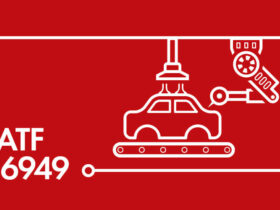A HubSpot partner is a certified expert or agency that has proven experience in implementing, customizing, and optimizing HubSpot’s CRM and marketing automation tools. These partners have passed HubSpot’s technical and strategic training requirements and often have deep knowledge of integrating HubSpot with other business systems. Working with a HubSpot partner gives businesses access to professionals who understand how to configure the CRM in a way that aligns with specific goals, industries, and workflows. They bring precision to the table, reducing the margin for error in CRM setup and ensuring every part of the HubSpot ecosystem is used to its full potential.
Customized CRM Configuration That Fits Business Needs
A HubSpot partner tailors the CRM implementation to fit the specific structure of a business. They start by auditing existing customer data, identifying gaps, and designing a CRM setup that reflects how leads flow through the sales and marketing pipeline. This includes building custom properties, defining lifecycle stages, and creating segmentation rules that suit the business model. Instead of using generic templates, a HubSpot partner aligns every detail of the CRM to support sales tracking, contact management, and customer service operations. The result is a CRM system that operates with clarity and relevance from day one.
Streamlined Data Migration and System Integration
Migrating data into HubSpot and integrating it with existing systems is one of the most critical steps in CRM implementation. A HubSpot partner ensures that contact records, deal histories, and activity logs from legacy CRMs are migrated without loss or duplication. They map each field accurately, normalize inconsistent entries, and test imports before going live. For businesses that rely on third-party platforms like Salesforce, Shopify, or Microsoft Dynamics, the partner handles API configurations or middleware setup to keep data flowing smoothly between systems. This removes operational friction and creates a central source of truth across departments.
Automation Workflows That Enhance Productivity
One of the main advantages of working with a HubSpot partner is their ability to build powerful automation workflows. These workflows remove repetitive tasks and keep teams focused on meaningful engagement. A partner can set up automated lead nurturing emails, assign deals to the right reps based on custom rules, and trigger internal tasks based on customer actions. Every automation is aligned with strategic objectives, whether that’s accelerating the sales cycle, improving customer retention, or tracking post-sale follow-ups. By using logic-driven workflows, businesses gain consistency, speed, and greater control over the buyer journey.
Sales Pipeline Optimization for Higher Conversion
A well-implemented CRM needs a sales pipeline that reflects actual sales processes. A HubSpot partner builds pipelines with clearly defined deal stages, accurate forecasting tools, and performance tracking built-in. They help businesses identify gaps where deals stall, create automated nudges to keep opportunities moving, and provide visibility into what’s working and what’s not. The partner also configures lead scoring models, helping sales reps focus their energy on high-potential prospects. With improved tracking and cleaner pipelines, businesses convert more leads and close deals faster.
Marketing and CRM Alignment with Unified Reporting
Marketing and sales alignment depends on shared goals, data, and communication. A HubSpot partner ensures that marketing campaigns feed directly into the CRM, where lead sources, conversion paths, and campaign results are tracked in real time. They set up shared dashboards so that both teams can monitor performance, understand where leads are coming from, and make decisions based on unified metrics. Instead of relying on disjointed spreadsheets or conflicting reports, businesses get access to a live snapshot of the entire customer journey. This alignment eliminates wasted budget, increases ROI, and fosters true collaboration.
Training and Support That Accelerates Adoption
CRM systems are only effective when teams know how to use them. A HubSpot partner provides hands-on training sessions that focus on the exact features each team needs. Sales reps learn how to log activity, track deals, and use sequences, while marketers focus on email tools, landing page builders, and automation. Partners provide documentation, video walkthroughs, and live Q&A support so that users feel confident navigating the platform. In addition, the partner remains available after implementation to help resolve issues, refine workflows, and support long-term CRM growth.
Scalable Solutions That Grow With the Business
A HubSpot partner designs CRM systems with scalability in mind. As businesses expand, hire more team members, and enter new markets, their CRM must evolve. Partners create flexible frameworks that can accommodate new contact properties, additional pipelines, expanded integrations, and multi-language support. This future-ready approach prevents businesses from outgrowing their CRM infrastructure and avoids costly rebuilds later on. The partner also monitors performance over time, identifying new opportunities for automation, personalization, and segmentation as the business matures.
What to Remember When Working with a HubSpot Partner
Success with a HubSpot partner starts with clear communication and alignment on business goals. It’s important to define what the CRM needs to achieve—whether it’s improved lead management, better reporting, or faster sales cycles—so the partner can design the right solution. Businesses should share existing pain points, data structure issues, and any prior experience with other platforms. This helps the partner avoid pitfalls and deliver a CRM setup that actually solves problems.
Collaborating with a HubSpot partner is not a one-time setup; it’s an ongoing process. Businesses should be prepared to test, refine, and evolve workflows over time. Regular check-ins, performance reviews, and feedback loops are essential for making sure the system continues to support growth. When the business changes, the CRM should change with it—and the partner plays a key role in that evolution.
It’s also important to verify the credentials and track record of any HubSpot partner before committing. Checking for certifications, case studies, and client testimonials helps ensure that the partner has real-world experience and understands the unique challenges of your industry. The right partner becomes more than a consultant—they act as a strategic extension of your team.
Final Thoughts
Working with a HubSpot partner gives businesses a strategic advantage during CRM implementation. Their ability to tailor setups, integrate systems, build automation, and provide ongoing support ensures that HubSpot becomes a central hub for marketing, sales, and service operations. With better alignment, cleaner data, and scalable workflows, businesses can increase efficiency, boost conversion rates, and unlock growth. The expertise of a certified partner removes the guesswork and delivers a CRM experience that actually drives results.











